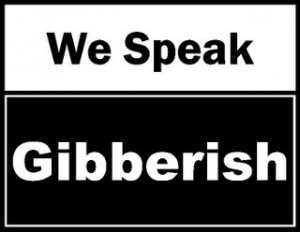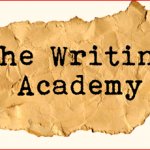 The EU Auditors recent publication ‘Brief list of misused English terms in EU publications’ it is recognised that the EU uses a rather unique blend of English terms, not actually used by many folks with English as their first language. Indeed it begins by stating the EU and EC uses ‘a vocabulary that differs from that of any recognised form of English. It includes words that do not exist or are relatively unknown to Native English speakers…and often even to standard spellcheckers/ grammar checkers’. So if you ever feel like you need a dictionary when reading an EU paper or call for proposals, then this list of translated ‘English’ terms may be very useful.
The EU Auditors recent publication ‘Brief list of misused English terms in EU publications’ it is recognised that the EU uses a rather unique blend of English terms, not actually used by many folks with English as their first language. Indeed it begins by stating the EU and EC uses ‘a vocabulary that differs from that of any recognised form of English. It includes words that do not exist or are relatively unknown to Native English speakers…and often even to standard spellcheckers/ grammar checkers’. So if you ever feel like you need a dictionary when reading an EU paper or call for proposals, then this list of translated ‘English’ terms may be very useful.
 Writing Academy Lunchbyte – Structuring your paper: looking at grammar, vocabulary and style
Writing Academy Lunchbyte – Structuring your paper: looking at grammar, vocabulary and style










 New Nepal scoping review on maternal & neonatal health
New Nepal scoping review on maternal & neonatal health Fourth INRC Symposium: From Clinical Applications to Neuro-Inspired Computation
Fourth INRC Symposium: From Clinical Applications to Neuro-Inspired Computation Writing policy briefs
Writing policy briefs Upholding Excellence: The Concordat to Support Research Integrity
Upholding Excellence: The Concordat to Support Research Integrity ECR Funding Open Call: Research Culture & Community Grant – Application Deadline Friday 12 December
ECR Funding Open Call: Research Culture & Community Grant – Application Deadline Friday 12 December MSCA Postdoctoral Fellowships 2025 Call
MSCA Postdoctoral Fellowships 2025 Call ERC Advanced Grant 2025 Webinar
ERC Advanced Grant 2025 Webinar Horizon Europe Work Programme 2025 Published
Horizon Europe Work Programme 2025 Published Horizon Europe 2025 Work Programme pre-Published
Horizon Europe 2025 Work Programme pre-Published Update on UKRO services
Update on UKRO services European research project exploring use of ‘virtual twins’ to better manage metabolic associated fatty liver disease
European research project exploring use of ‘virtual twins’ to better manage metabolic associated fatty liver disease
Great find…. fascinating stuff.
Is it terrible of me to admit that when I read EU funding documents I hear them in my head in a hybrid Dutch-Scandanvian accent?
This is fab. I’ll definitely be sharing this across department and Oxford!
Wow, I bet these people also found that ‘water is wet’… International English is something different from the spoken American or British English. It is the same language that you find spoken at international academic conferences. Points similar to those found in this post can be stated for Am and Br English as well. Flexibility, variety, and adaptation people, that’s all we need.
Nice find Corrina, what I like most about this is that this is an official EU report!